On June 20-21, 2024, the National Energy Internet Conference took place successfully in the Future Science City of Changping District, Beijing. This conference was co-hosted by Tsinghua University and the Management Committee of Beijing Future Science City, organized by the Energy Internet Innovation Research Institute of Tsinghua University and Beijing Future Science City Development Group Co., Ltd., with collaborative support from the Sichuan Energy Internet Research Institute of Tsinghua University, the Institute of National Governance and Global Governance of Tsinghua University, and the Carbon Neutrality Research Institute of Tsinghua University.
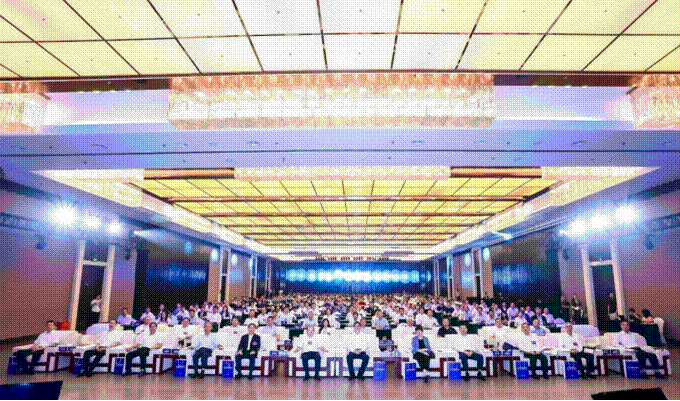
Conference Scene
To support the achievement of the “dual carbon” goals and promote a green energy transition, the conference intended to establish a cross-industry communication platform for innovative resources among enterprises related to the energy internet, research institutions, venture capital organizations, and others under the theme of “AI Empowering the Energy Internet: Innovating New Quality Productive Forces.” Its purpose was. The goal was to promote the co-construction of an open, shared, and collaborative innovation industrial ecosystem for the energy internet and to shape a new pattern for the low-carbon intelligent development of the future energy internet industry.
Experts and leaders, including Chief Engineer of the National Energy Administration Xiang Haiping, Academician Wang Xiaoyun of the Chinese Academy of Sciences, Academician Liu Yunjie of the Chinese Academy of Engineering, Deputy Secretary of the Changping District Committee and District Mayor, Deputy Secretary of the Party Working Committee of Future Science City and Director of the Management Committee Zhi Xianwei, Vice Chair of Tsinghua University’s Council and Vice President of the Alumni Association Jiang Shengyao, Deputy Director of the Future Science City Management Committee and Vice Mayor of Changping District Liu Qiang, along with nearly a thousand leaders, experts, and representatives from energy internet enterprises, research institutions, financial organizations, industry associations, and media, attended the in-person conference. Over 100,000 viewers watched the live stream through platforms such as Tsinghua University. The conference was hosted by Gao Wensheng, Secretary-General of the National Energy Internet Industry and Technology Innovation Alliance.
At the opening ceremony, Xiang Haiping, Chief Engineer of the National Energy Administration, delivered a speech. He noted that in recent years, the National Energy Administration has seriously implemented a new energy security strategy, promoted the integrated development of major technology research and development, significant equipment manufacturing, major demonstration projects, and technology innovation platforms, while striving to overcome key core technology challenges in the new energy system and continuously promote high-quality development in the energy sector. Looking to the future, the National Energy Administration will unswervingly push for energy technology innovation, further strengthen top-level design, carefully cultivate and strengthen the new energy industry, vigorously advance energy technology innovation, and comprehensively enhance international energy cooperation, contributing to high-quality economic and social development and providing solid support for achieving carbon peak and carbon neutrality goals.
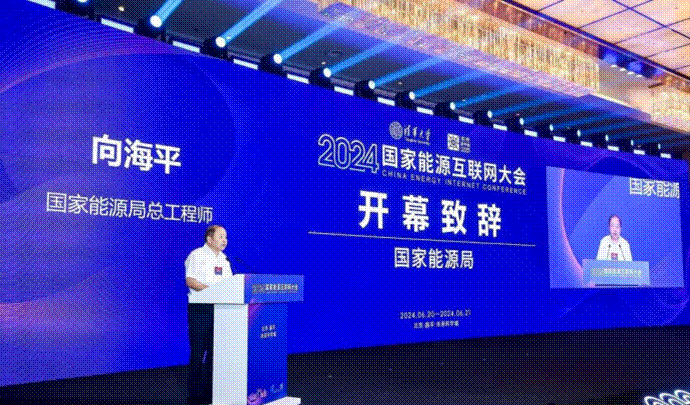
Xiang Haiping’s Speech
Zhi Xianwei, Deputy Secretary of the Changping District Committee and District Mayor, also attended the conference and delivered a welcome address. He mentioned that as the only area in Beijing focused on developing the energy internet industry, Changping has regarded the energy internet as a key pathway for strengthening its advanced energy industry in recent years. It has introduced the country’s first special support policy for energy internet regions, integrating all technological directions, including smart grids, ultra-high voltage transmission, and clean energy, which presents a promising development trend. Looking ahead, Changping will accelerate the integration of “energy + internet,” promote the demonstration and application of new technologies, new models, and new business formats, and stimulate transformation across the entire value chain of energy production, transportation, storage, and consumption, striving to create an energy internet industrial cluster.
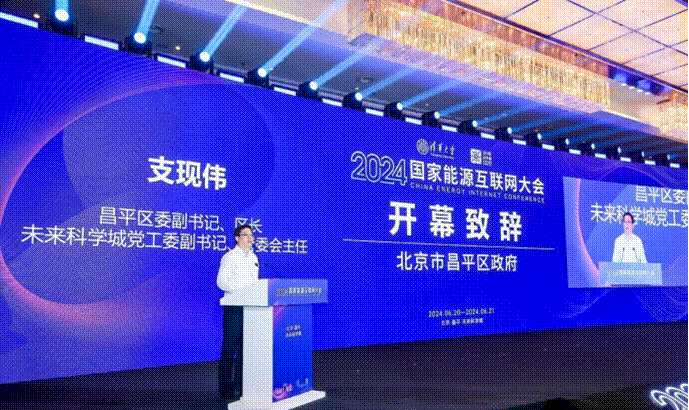
Zhi Xianwei’s Speech
Jiang Shengyao, Vice Chair of Tsinghua University’s Council and Vice President of the Alumni Association, stated in his speech that the energy internet will empower the traditional energy industry with innovative technologies, driving deep integration and innovation across various fields of energy. This represents a new quality productive force supporting the transformation of new energy. In recent years, China has made solid strides in the energy internet field, achieving significant results. To facilitate the energy revolution and help the country meet its dual carbon goals, Tsinghua University has established several research institutes that have aided the nation in breaking through multiple technological barriers in the energy sector, actively promoting international cooperation, and voicing China’s perspective globally. In the future, Tsinghua University will work together with everyone to further cultivate interdisciplinary talents capable of promoting technological innovation and social progress, contributing to the sustainable and healthy development of the energy internet.
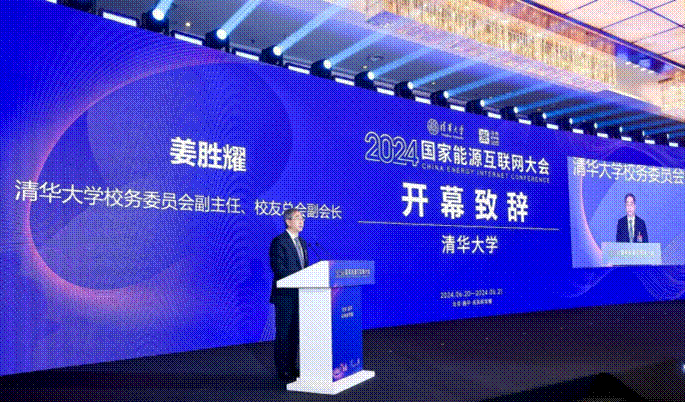
Jiang Shengyao’s Speech
Academician Wang Xiaoyun of the Chinese Academy of Sciences delivered a keynote report titled “The Market for Data Factors and Its Role in Energy Internet.” In her report, she introduced the opportunities and challenges of the data factor market in relation to the energy internet and explored the application and challenges of cryptography in data factors and the energy internet. She pointed out that with the rapid growth of data trading, data has become a fundamental strategic resource and a key production factor. The security challenges in the energy internet domain, including network security, IoT security, and industrial control security, have become increasingly prominent. She emphasized that new cryptographic technologies, such as quantum-resistant cryptography, are crucial for ensuring the security of the energy Internet, and the integration of cryptography with new generation information technology will provide strong support for the digital economy.
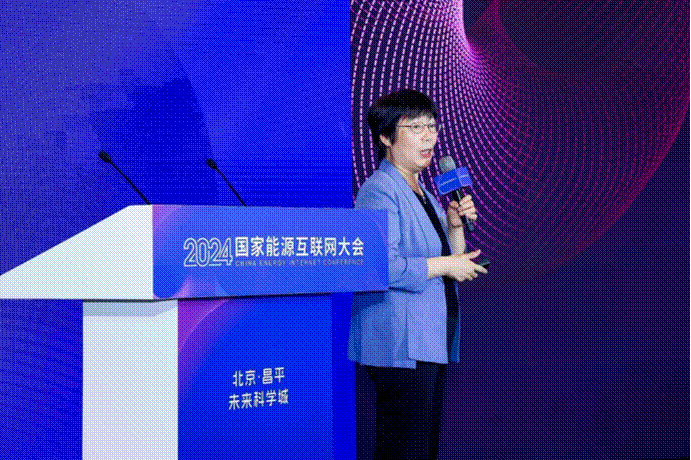
Wang Xiaoyun’s Report
Academician Liu Yunjie of the Chinese Academy of Engineering delivered a keynote report titled “Thoughts on the Coordinated Development of Energy and Computing Power Internet.” He noted that deterministic network technology can effectively solve critical issues between the energy internet and the computing power internet, which is of significant importance for promoting the coordinated development of both networks. He emphasized that network and computing power technologies are crucial for achieving dual carbon goals and addressing challenges within energy systems. He called for strengthened technological research and development to address the mismatch between computing power development needs and network bandwidth growth, promoting the sustained development of the energy internet.
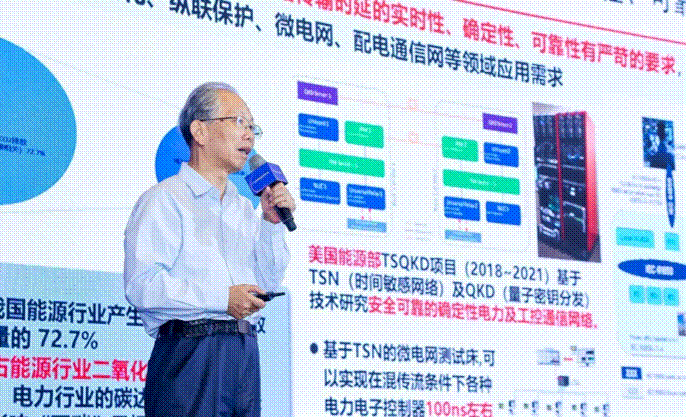
Liu Yunjie’s Report
During the conference, Gao Feng, Deputy Dean of the Tsinghua University Energy Internet Innovation Research Institute and Deputy Secretary-General of the Alliance, officially released the “2024 Annual Report on the Development of the National Energy Internet,” representing the Department of Electrical Engineering and Applied Electronics (EEA) of Tsinghua University, the Energy Internet Innovation Research Institute of Tsinghua University, the Sichuan Energy Internet Research Institute of Tsinghua University, and the National Energy Internet Industry and Technology Innovation Alliance. This report comprehensively summarizes and organizes the hot policies in the energy internet sector, focuses on trends in the development of the energy internet industry, and consolidates the current status of innovative development within the energy internet. The report notes that in 2023, the number of energy internet enterprises surpassed 300,000, with increasingly prominent characteristics of a networked energy system and cross-sector integration becoming the common choice for energy internet enterprises. This report embodies the consensus of various sectors regarding the energy internet, providing foundational and forward-looking perspectives for government, enterprises, and research institutions and inspiring innovative thinking.
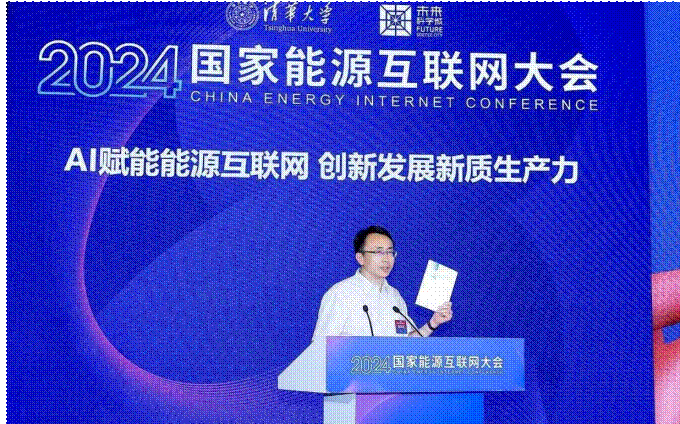
Release of the “2024 Annual Report on the Development of the National Energy Internet”
During the conference, Liu Qiang, Deputy Director of the Management Committee of Future Science City and Vice Mayor of Changping District, released the “Construction Plan for the Carbon Monitoring and Management Platform of Future Science City.” According to the plan, the Management Committee of Future Science City will collaborate with EEA, Energy Internet Innovation Research Institute of Tsinghua University, and Sichuan Energy Internet Research Institute of Tsinghua University to jointly create a carbon monitoring and management platform integrated with functions such as monitoring, management, control, regulation, and statistics. This platform will primarily serve the Management Committee of Future Science City, district-level departments, and enterprises located in Future Science City. It will adopt a principle of unified planning and phased construction, creating a dynamic carbon measurement demonstration to support the transition from energy consumption dual control to carbon dual control, facilitating Changping District’s dual carbon goals. The Future Science City Carbon Monitoring and Management Platform is scheduled for official launch in June next year, and upon completion, it will become the country’s first regional-level carbon emission monitoring and management platform based on a “carbon meter-terminal-system” application model. This platform will effectively ensure that the carbon emission measurement processes and results are “measurable, reportable, and verifiable,” achieving dynamic monitoring, regulation, and application analysis of energy consumption and carbon emissions at multiple levels in Future Science City, providing strong data and management support for carbon decision-making.
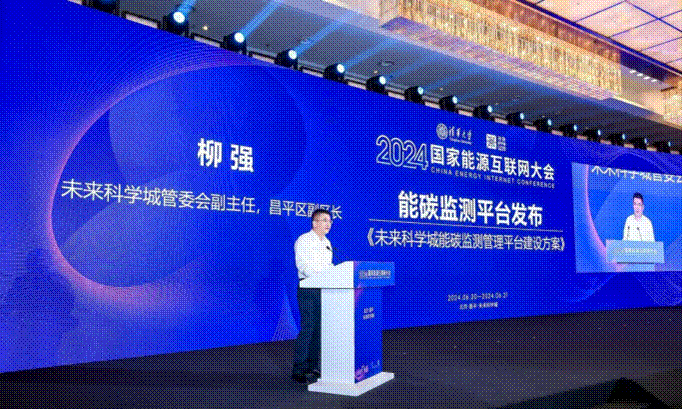
Release of the “Construction Plan for the Carbon Monitoring and Management Platform of Future Science City”
Subsequently, Zhi Xianwei, Deputy Secretary of the Changping District Party Committee, District Mayor, Deputy Secretary of the Party Working Committee, and Director of the Administrative Committee of Future Science City; Kang Chongqing, Dean of EEA at Tsinghua University; Li Jiao, Director of the Materials Industry Division at the Beijing Municipal Bureau of Economy and Information Technology; Liu Qiang, Deputy Director of the Administrative Committee of Future Science City and Deputy Mayor of Changping District; Chen Yongshen, Deputy Director of the Energy Division at the Beijing Municipal Development and Reform Commission; Gao Feng, Deputy Director of the Energy Internet Innovation Institute at Tsinghua University; Liu Qiang, Deputy General Manager of Zhongguancun Science and Technology Service Company; Zhang Ning, Tenured Associate Professor of EEA at Tsinghua University; Quan Yu, Deputy Director of the Industrial Development Department at Sichuan Energy Internet Research Institute of Tsinghua University; and Shi Zinan, Chairman of Beijing Xiqing Energy Technology Co., Ltd., jointly completed the launch ceremony for the Future Science City Energy and Carbon Monitoring and Management Platform.
In addition, the conference honored the leading enterprises of projects awarded the “2024 Best Practice Cases in the Energy Internet” and experts with the “Outstanding Contribution Award.”
During the thematic report session, Li Dan, Deputy Director of the National Power Dispatch Control Center of the State Grid, Li Peng, Executive Director and Dean of the New Power System (Beijing) Research Institute of the Southern Power Grid, Sun Fuyou, Vice President and CEO of Huawei’s Power Digitalization Division, and Lu Chao, Tenured Professor and Vice Dean of EEA, Tsinghua University, delivered thematic reports titled “AI Empowering the Scheduling Operation of New Power Systems,” “Research and Prospects of Artificial Intelligence Basic Models for Power Systems,” “Calculating Three Accounts to Accelerate Digital and Intelligent Transformation in the Energy Sector,” and “Applications and Challenges of Artificial Intelligence in Power System Stability Analysis and Control.” Experts gathered together to discuss the plans for the development of China’s energy internet industry and technology innovation against the backdrop of the dual carbon goals.
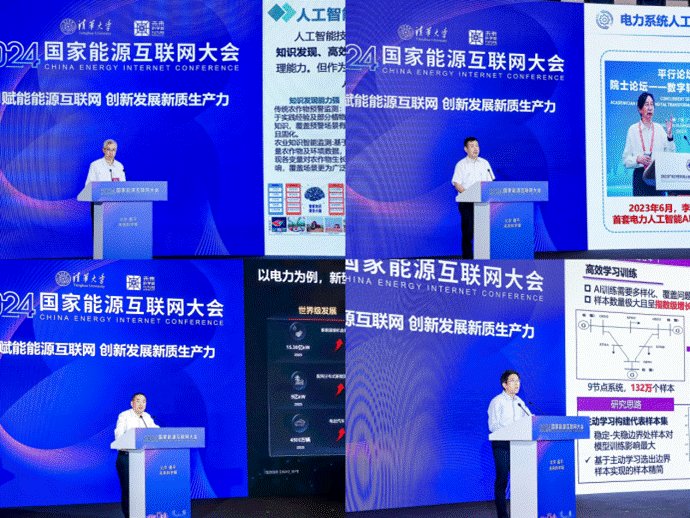
Thematic Reports
On the afternoon of the 20th, the conference organized seven sub-forums around topics such as energy digitalization, industrial technology innovation and engineering applications, energy IoT, smart hydrogen energy, carbon neutrality in power, energy storage applications, and standardization of the energy internet, facilitating extensive and in-depth discussions and exchanges.
On the morning of the 21st, experts from the China Electric Power Research Institute, National Energy Group New Energy Research Institute, Dongfang Electronics Co., Ltd., Huawei ICT Marketing, Beijing Future Science City Management Committee, Xinhua News Agency’s China Economic Information Service, Chinese Academy of Social Sciences’ Quantitative Economics and Technological Economics Research Institute, and Tsinghua University Energy Internet Innovation Research Institute participated in the Xinhua Energy Salon, discussing how artificial intelligence can assist the development of the energy internet.
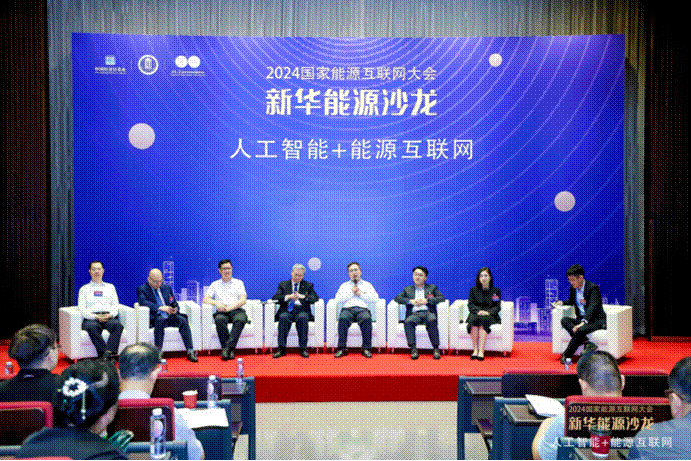
Xinhua Energy Salon
On the afternoon of the 21st, the conference organized visits for some representatives to the Future Science City exhibition hall, Energy Internet Building, and Central Research Institute of the State Power Investment Corporation. Attendees gained a more comprehensive and in-depth understanding of the energy valley industrial development plans, supporting policies, and latest construction achievements of Future Science City.
This National Energy Internet Conference focused on topics such as energy digital transformation, hydrogen technology applications, pathways to achieving carbon neutrality in power, the current state of energy IoT development, and paths for the collaborative development of energy storage and new energy. It provided new perspectives, ideas, and initiatives for building a beautiful China and promoting ecological civilization construction, laying a solid foundation for achieving a greener, smarter, and more sustainable future. China’s innovations and transformations in the energy sector will take even more solid steps, providing Chinese wisdom and solutions for the construction and development of the global energy internet.

















 News & Events
News & Events